Discover the Women of the Hall
These are the Inductees of the National Women’s Hall of Fame. Select any of the women to discover their stories and learn how they have influenced other women and this country.
 Amelia Earhart
Science
1897
Kansas
1973
Amelia Earhart
Science
1897
Kansas
1973

Amelia Earhart
The first woman to fly across the Atlantic Ocean, and the first to fly solo across the Pacific Ocean. Earhart was a strong individual who inspired other women to take risks in non-traditional arenas.
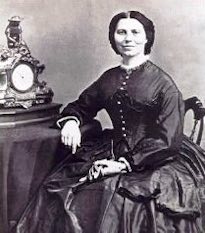 Clara Barton
Science
1821
Massachusetts
1973
Clara Barton
Science
1821
Massachusetts
1973

Clara Barton
Founder of the American Red Cross, Barton ministered to injured soldiers during the Civil War and became known as the “Angel of the Battlefield.” Devoted to the organization, she later took to the field, providing relief in the Spanish American War at the age of 77.
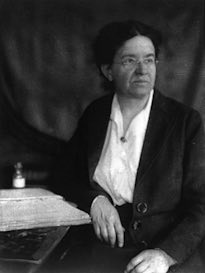 Florence Sabin
Science
1871
Colorado
1973
Florence Sabin
Science
1871
Colorado
1973

Florence Sabin
First woman graduate of the Johns Hopkins School of Medicine and the first woman to teach there. A talented anatomist and researcher, Sabin performed pioneering work in embryology, the lymphatic system and tuberculosis.
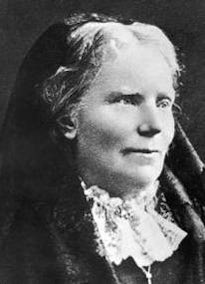 Elizabeth Blackwell
Science
1821
England
1973
Elizabeth Blackwell
Science
1821
England
1973

Elizabeth Blackwell
First American woman awarded an M.D. Blackwell founded the New York Infirmary for Women and Children and the Women’s Medical College, after having been banned from hospitals in New York. She paved the way for women in medicine.
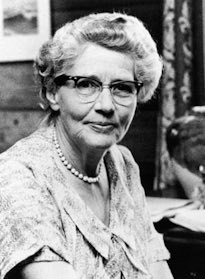 Helen Brooke Taussig
Science
1898
Massachusetts
1973
Helen Brooke Taussig
Science
1898
Massachusetts
1973

Helen Brooke Taussig
As Chief of the heart clinic at Johns Hopkins School of Medicine, she developed a pioneering operation in 1944 which solved the often fatal “blue baby” (children born with an anatomical heart defect) problem, saving countless infants.
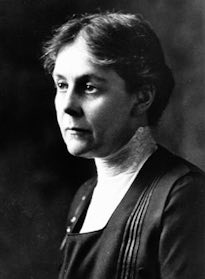 Alice Hamilton
Science
1869
Indiana
1973
Alice Hamilton
Science
1869
Indiana
1973

Alice Hamilton
Physician pathologist who specialized in industrial diseases. Hamilton helped save workers’ lives by forcing reforms in the workplace and protection from dangers such as lead poisoning.
 Rachel Carson
Science
1907
Pennsylvania
1973
Rachel Carson
Science
1907
Pennsylvania
1973

Rachel Carson
Zoologist whose concern over the damaging effects of pesticides and other poisons on the environment led to her groundbreaking work, Silent Spring. Carson’s book was a catalyst for the environmental movement of today.
 Margaret Mead
Science
1901
1976
Margaret Mead
Science
1901
1976

Margaret Mead
Trailblazing anthropologist whose book, Coming of Age in Samoa, caused scientific and social rethinking of adolescence. Mead’s career included the study of numerous tribes as well as extensive and innovative field work.
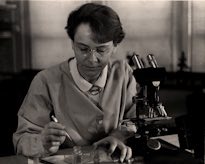 Barbara McClintock
Science
1902
1986
Barbara McClintock
Science
1902
1986

Barbara McClintock
Geneticist who pioneered work in maize genetics and the complex mechanisms which control and regulate cell development. McClintock helped to advance scientific understanding of this important field. In 1983 she received the first unshared Nobel Prize in medicine ever awarded to a woman.
 Sally Ride
Science
1951
California
1988
Sally Ride
Science
1951
California
1988

Sally Ride
First American woman astronaut (1983), when she rode aboard the Challenger into space. A scientist, Ride served as the Director of the California Space Institute at the University of California, San Diego.
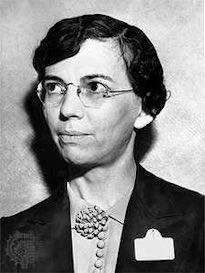 Florence B. Seibert
Science
1897
1990
Florence B. Seibert
Science
1897
1990

Florence B. Seibert
Scientist who made it possible to test for tuberculosis and who pioneered safe intravenous therapy. Siebert also devoted many years to cancer research.
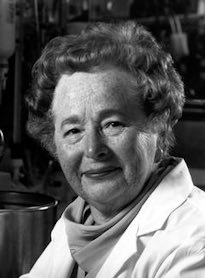 Gertrude Belle Elion
Science
1918
1991
Gertrude Belle Elion
Science
1918
1991

Gertrude Belle Elion
1988 Nobel Prize winner who spent a lifetime creating drugs to combat leukemia, gout, malaria, herpes and other auto-immune diseases. Elion’s work saved many lives, and led to the development of the first major AIDS drug AZT.
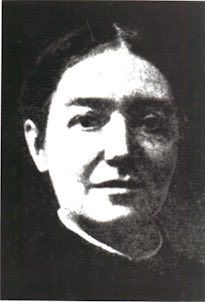 Mary Putnam Jacobi
Science
1842
1993
Mary Putnam Jacobi
Science
1842
1993

Mary Putnam Jacobi
Physician who founded the Association for the Advancement of Medical Education of Women. Jacobi was a leader in obtaining quality medical education for women.
 Ellen Swallow Richards
Science
1842
1993
Ellen Swallow Richards
Science
1842
1993

Ellen Swallow Richards
The nation’s first professional woman chemist, an important figure in opening careers in science to women. By applying scientific principles to domestic life, Richards became a leader in the new disciplines of sanitary engineering, nutrition and home economics.
 Mae Jemison
Science
1956
1993
Mae Jemison
Science
1956
1993

Mae Jemison
Physician, engineer and astronaut. Jemison was the first African American woman astronaut in space, traveling on the Endeavor in 1992. Jemison today works on linking space age technology with developing nations and encouraging women and minorities to enter scientific fields.
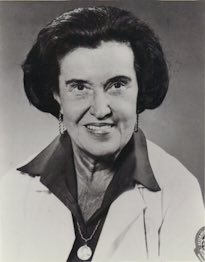 Rosalyn S. Yalow
Science
1921
New York
1993
Rosalyn S. Yalow
Science
1921
New York
1993

Rosalyn S. Yalow
First American woman trained in the U.S. to win the Nobel Prize for Medicine. Known for pioneering the use of radioisotopes to analyze physiological systems, Yalow made possible very detailed analysis of blood chemistry, saving lives and allowing for proper doses of medication.
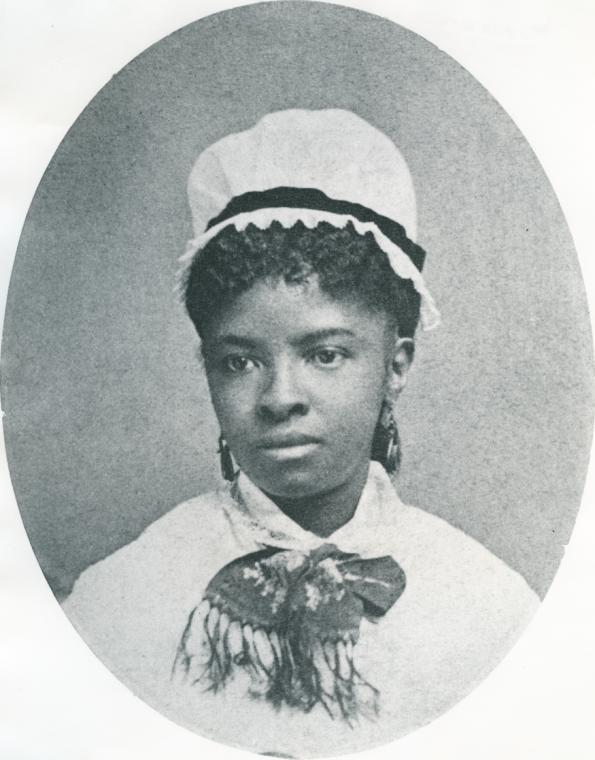 Mary Mahoney
Science
1845
Massachusetts
1993
Mary Mahoney
Science
1845
Massachusetts
1993

Mary Mahoney
First African American woman to study and work as a professionally trained nurse. Mahoney received her diploma from the New England Hospital in 1879, one of only four of 18 to pass the difficult course.
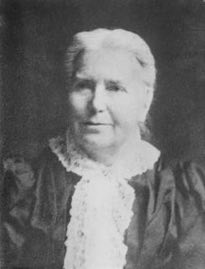 Emily Blackwell
Science
1826
England
1993
Emily Blackwell
Science
1826
England
1993

Emily Blackwell
Sister of Elizabeth Blackwell, was also a physician. Emily ran the infirmary for women and the medical college for women founded by her sister, providing excellent training for women in medicine.
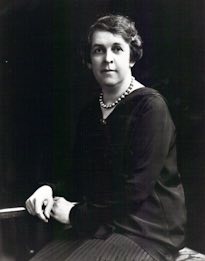 Alice Evans
Science
1881
1993
Alice Evans
Science
1881
1993

Alice Evans
Scientist who found the organism which caused undulant fever, a killer disease. Evans’s discovery led to mandatory milk pasteurization, saving countless lives worldwide. An outstanding scientist, she also advocated women entering the scientific professions.
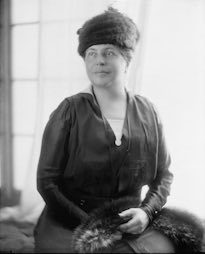 Lillian Wald
Science
1867
Ohio
1993
Lillian Wald
Science
1867
Ohio
1993

Lillian Wald
Nurse who organized the public health nursing service and the Henry Street Settlement in New York City to meet the needs of the urban poor. Wald created public health nursing services for many groups, and established the Public Health Nurses, known today as Visiting Nurse Service.
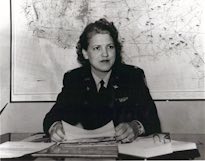 Jacqueline Cochran
Science
1906
1993
Jacqueline Cochran
Science
1906
1993

Jacqueline Cochran
First woman aviator to break the sound barrier. A leader and pilot, Cochran held many speed, distance and altitude records. She led the Women’s Air Force Service Pilots during World War II, becoming the first woman to pilot a bomber across the Atlantic Ocean.
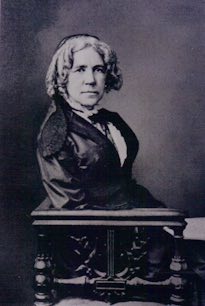 Maria Mitchell
Science
1818
Massachusetts
1994
Maria Mitchell
Science
1818
Massachusetts
1994

Maria Mitchell
An astronomer who discovered a new comet in 1847, Maria Mitchell was the first woman named to membership in the American Academy of Arts & Sciences. She was also a founder of the Association for the Advancement of Women.
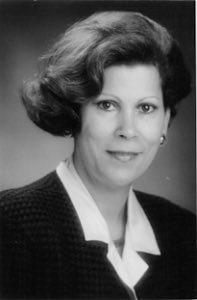 Antonia Novello
Government, Science
1944
Puerto Rico
1994
Antonia Novello
Government, Science
1944
Puerto Rico
1994

Antonia Novello
First woman and first Hispanic to be named Surgeon General of the United States. A pediatrician, Novello has used her position to alleviate suffering worldwide, especially for women and children.
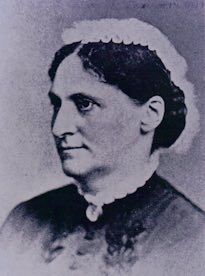 Linda Richards
Science
1841
1994
Linda Richards
Science
1841
1994

Linda Richards
Received the first diploma awarded by the nation’s first school of nursing. Richards dedicated her career to creating professional nurses training schools nationwide to improve both patient care and nurses’ skills.
